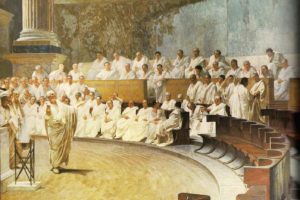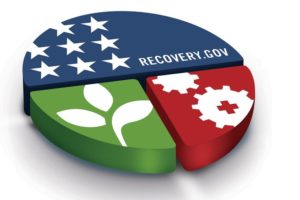Newly elected House and Senate Republicans have started arriving in Washington to attend freshmen orientation, select Congressional offices, and to interact with the leadership. The drapes in most offices have not been hung, but these unseasoned GOP lawmakers are beginning to understand some of the monumental challenges that will be on the legislative agenda in 2011. The priority issue and the one that most campaigns adopted during the 2010 mid-term elections is the state of America’s fiscal health. The evidence of an economic recovery is becoming clearer daily, but the federal government’s annual budget deficit is around $1.4 trillion and the national debt is growing closer to $14 trillion. The limit on Uncle Sam’s credit card is currently $14.3 trillion.
House Minority Leader John Boehner, who is slated to become House Speaker in January, has been talking to incoming members of the House GOP about the need to raise the federal debt ceiling early next year. However, most of these unaccustomed members made commitments to their Tea Party base of supporters that they would oppose any increase to the ceiling. Undoubtedly, voters will be watching closely to see if those campaign promises are upheld, and recently elected lawmakers fearful of losing their new posts in 2012 will do all they can to keep those commitments.
Several of these lawmakers are officially on record saying they would not vote in favor to raise the debt ceiling, but the decision is centered on ideology and has less to do with pragmatism. America must rein in federal spending and voters expressed that concern on November 2, but freshly elected leaders that are heading to Congress should be careful not to obstruct the economic recovery for the sole purpose of scoring political points. Whether they like it or not, America has obligations, and we elect leaders to embrace the responsibility to lead on tough issues. Voting against an increase in the nation’s debt ceiling would be an excellent tactical move, but the decision would be void of any leadership. We need leaders that will develop a comprehensive plan to reduce federal debt, control annual expenditures, reform costly entitlement programs, and incentivize economic growth.
Unfortunately, the fight could become more about politics and less about the economic well-being of America. I firmly agree with the virgin GOP lawmakers that federal spending is largely out of control and we must put the country on a fiscal austerity plan that will encourage private sector growth and economic prosperity. Federal spending in America is now hovering around 25% of GDP and tax revenue is at 15% of GDP, which has placed the country on an unsustainable path that will lead to less economic security. However, the economic recovery is in jeopardy of being destabilized by ill-timed government policy.
The inexperienced House and Senate GOP lawmakers do not have to search far to see a preview of what is to come if they decide to play “party politics”. The Asian financial crisis that started in July 1997 eventually caused the Russian debt crisis in 1998, because the world is interdependent. Financial contagion is a real issue in a world that has become increasingly globalized and interconnected. The recent worldwide slowdown in production was largely driven by the American housing crisis and the subsequent credit crisis in our financial system. If an increase in the current debt limit does not pass, then it would suggest the country may not meet its financial obligations and that would severely cripple the worldwide financial system, ravage the bond market, impair the U.S. dollar, and frighten away foreign investment in U.S. assets. America would enter an economic winter that we have not seen since the famed “Great Depression”.
Many of the Tea Party backed candidates are on record saying they would oppose any increase to the federal debt ceiling, but I hope they show the same courage that former President Bush (41) demonstrated in the early 90’s. Bush attracted voters on the campaign trail with a simple slogan – “No New Taxes.” However, the deficits leftover from the Reagan Administration placed unpredicted pressure on the first term President to make a choice between campaign rhetoric and fiscal responsibility. Thankfully, Bush chose to lead on the issue and placed the country on a path to fiscal prosperity by approving a wide-range of tax increases, which ultimately benefited the Clinton Administration in ways that are often ignored. Bush’s political base skewered him for the decision and he failed to win a second term, but in my opinion, Bush rightfully placed the American people before “party politics”.




